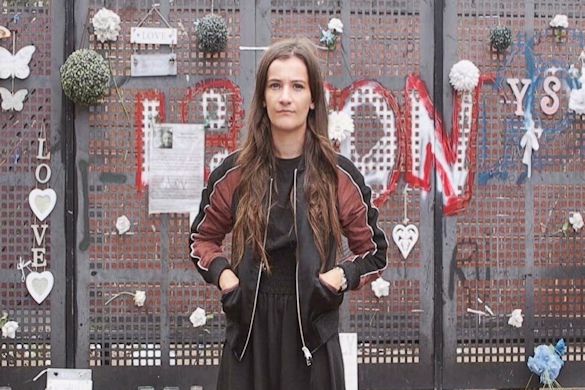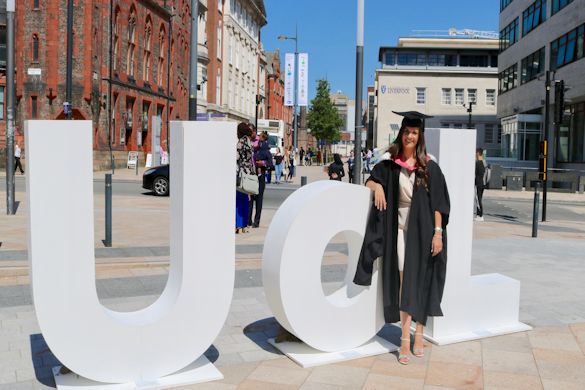
Sitting in the Liverpool Philharmonic in my cap and gown, I’d never felt so nervous. Not only because I was about to walk across the stage in front of hundreds of people but because it was the final moment. Less than a year earlier, I’d sat in my academic adviser’s office and told him I was going to graduate with a First. After writing quite a lot of my essays the night before, and starting most seminars with a frantic scan of the required reading – I was definitely not on track for a First. But still, I promised I was going to turn it around and confidently marched out of Abercromby Square wondering how I was actually going to achieve it.
During my time at university, I worked in the newsroom of Liverpool’s main radio station, Radio City. I started helping out when I was still in school and over the years I never really left. Opting to study Politics with Law, rather than Journalism, I knew that if I wanted a career as a broadcaster I was going to have to teach myself the ropes.
A typical day would start with a lecture, followed by a visit to the station and then back into uni for a seminar in the afternoon. Once I learnt how to juggle it all, I adored my time learning about elections in class and reporting on them too. By the time I graduated I had proudly reported on some momentous events such as the Hillsborough Inquest results and produced two of my own documentaries.
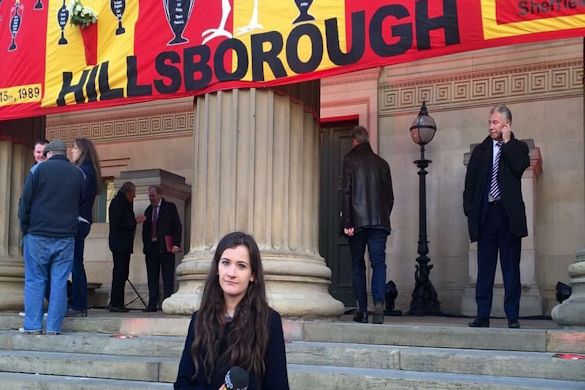
Here are some of my top tips for getting into journalism…
- Be passionate
This is my number one rule in life. Whichever career or industry you want to work in you need to be passionate. Whether that’s sport, politics, education, justice or just journalism in general – find your fire and use it to make a difference. There are a lot of people who can do a job well, but only some will have that passion which makes their work stand out and deliver stories in a way that makes an audience stop and listen.
- Get involved
If you want to be a journalist, it’s never been easier to get started. For radio, the university’s Liverpool Student Radio is an amazing place to begin and I wish I’d been more involved during my studies. Big bosses are closely listening to student radio stations to spot fresh talent and they’re the perfect place to gain experience and find your style. Setting up your own podcast, YouTube channel or blog is also a brilliant way to start and the more of this you do, the more confident you’ll be when it’s time to apply for jobs.
- Be determined
Journalism can be a tough, competitive industry and you need to be prepared to jump back up when you get knocked down. I’ve lost out on more awards than I’ve won but I’ve never let that impact my work or ambition. Don’t worry if your pitch is rejected or you don’t get the interview you want, as long as you are determined to succeed, you can make anything happen.
- Push the boundaries
I’m a lover of the quote, “well behaved women rarely make history” – and I use it as an excuse whenever I can. If you want to be a great journalist you need to be fearless, challenge everything and hold people to account. There are stories everywhere waiting to be told, so don’t be afraid of asking the tough questions. Send out Freedom of Information requests (FOIs) and start your investigations today. When I was writing my dissertation I really wanted a quote from a United Nations secretary, not having a way to contact him I decided I’d try and guess his email address – not something I’d recommend – but within a few hours I had a reply and a great, exclusive quote to include.
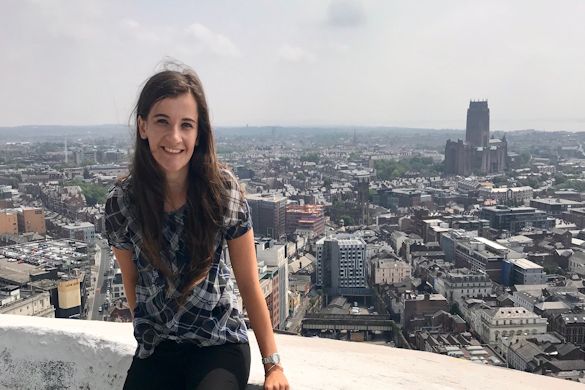
- Be inspired
As a Scouser, I’m probably slightly biased when I say Liverpool is the greatest city in the world – but it’s true. Learn about it’s history and try and attend as many of the guest lectures the University host and talks the Career Studio put on, you never know who you’re going to meet or what story you’ll hear. Also remember that your lecturers are experts in their field – I loved nothing more than a seminar going off topic and hearing about their experiences advising the government or prosecuting at The Hague.
- Be nice
Networking is a word you’ll hear so much in the industry and there’s no denying it’s important, but if you’re nice and make genuine connections with people – it’ll look after itself. While it can be useful to attend networking events, your taxi driver is just as important (and, as the unofficial eyes and ears of a city, they will give you some of the best stories!). It’s not just about making digital connections on LinkedIn – be nice, learn people’s names and it’ll help you go a long way.
7. Enjoy
The most important tip of all though is to enjoy the journey. There will always be people who seem ahead of you or opportunities that may pass you by but if you put everything into every project you do – you’ll make big steps. Being a journalist and attempting to make sense of our turbulent world can be a tiring and thankless job, but seeing your work published or sharing someone’s story which might otherwise not be heard makes it all worthwhile.
When I took my seat again on graduation day after walking across the stage, I was proud to not only have achieved a First, which I’d set out to do, but also to have spent an incredible three years learning in a world class city. Although I didn’t have a clear plan in place I’d never felt more ready to get out there and make a difference.
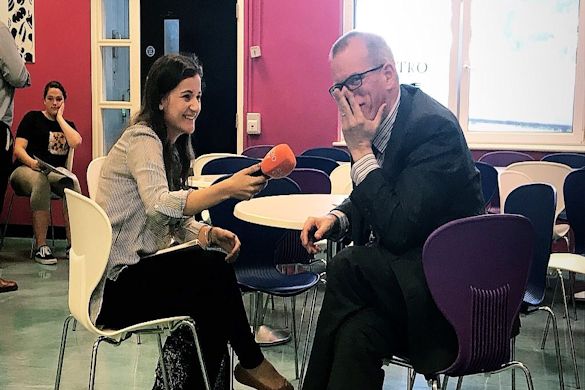
***
About me: Graduated in July 2018 (BA Politics with Law). Now a freelance, broadcast journalist and presenter specialising in investigative documentaries. Recently shortlisted for BBC Radio 4’s Student Broadcaster of the Year.
WATCH: Layla’s latest documentary, “Gangs, Guns & Grassing” exploring Liverpool’s gang culture
